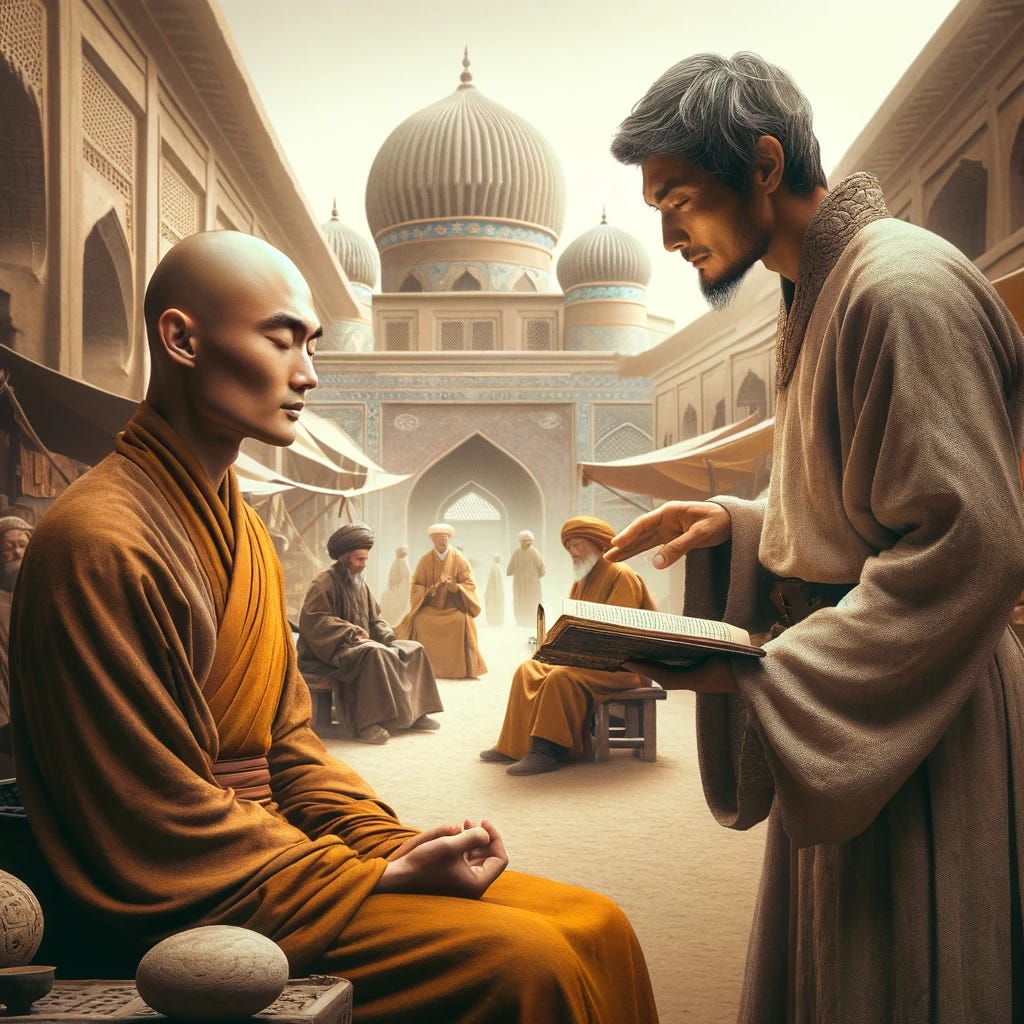The Monk and the Missionary
The Empire of the Mind requires more than zeal. It requires spirituality. (Yes, spirituality.) But this is neither New Age nonsense nor do-what-feels-good self-help. It requires discipline.
The term spirituality has been ruined, mostly by people who parrot, “I’m spiritual, but not religious.” While this is a perfectly valid position to hold, it doesn’t stand up very well against the backdrop of New Age nonsense and the errant cliches of the “consciousness community.”
We can draw a rough analogy:
Freedom : Responsibility :: Spirituality : Religion.
In other words, freedom without responsibility is license, and spirituality without religion’s discipline is almost always rudderless, structureless, feel-good-ism.
Those willing to structure their spirituality—whether through rituals, commitments, or devotion to teachers—are being religious, even unwittingly. And spirituality doesn’t mean one must believe in the supernatural.
It is rather:
Allowing oneself to stay humble before the mysteries of life and the universe while preparing to learn the difference between knowledge and wisdom.
Committing oneself to daily practices that allow one to achieve equipoise and radiative self-sovereignty, starting with self and moving outward.
Searching for answers to fundamental questions, such as Why are we here? and How are we to live? even if those questions only generate more questions.
Opening oneself to practices that allow one to think, feel, and receive novel insights or experiences—even if these cannot be put into words.
Working on something far more significant than personal gratification, accepting both the burdens and the bliss of a journey you may never finish.
In the video below, I join friends and mentors, Andrew Sweeny and Alexander Bard, on a podcast episode dedicated to “Spirituality in the Digital Age.” I argue that to fully engage Decentralism, we must animate our movement with spirituality.
That doesn’t mean we must pray over crypto wallets with woo-woo crystals or give up on any preexisting faith tradition that nourishes us. Instead, it means our actions must be trained on the Mission of decentralization.
With the Mission in mind, we must be prepared to be both monks and missionaries, fostering a holistic worldview—one of passion and purpose. We can even draw aspects from our various traditions to work toward something more ecumenical, even syncretist.
As we engage the Enemy together, the Jew can bring wisdom from the Torah and Talmud, the Hindu might share Krishna’s lessons from the Bhagavad Gita, and the Taoist can offer us the wisdom of Wu Wei. Tolerant Christians will share Jesus’s teachings while locking arms with people of other faiths because we all believe in peace, freedom, and pluralism.
How’s that for intersectionality?
If the minds of the technologists and builders have no spiritual mooring, they will be assimilated into the matrix of Central Authority. They will fearfully submit to big sticks or blindly follow carrots on strings. They will be captured and turned by an enemy with an invisible prison planned for us—with surveillance, manipulation, and control.
Are you a monk or a missionary? The truth is, we need both.




80% Monk and 20% Missionary here. :)